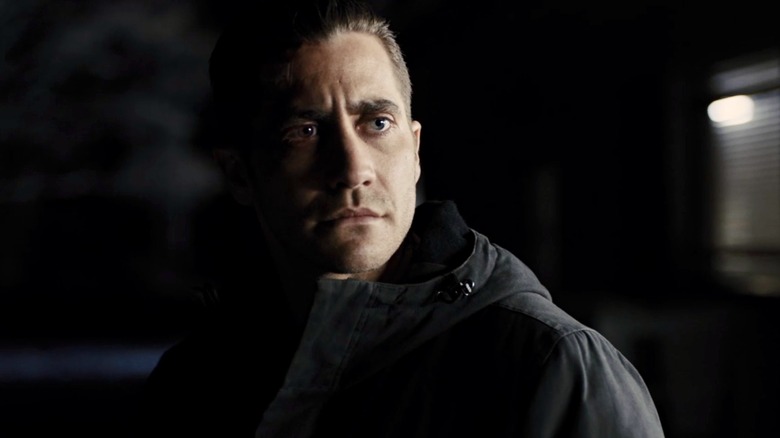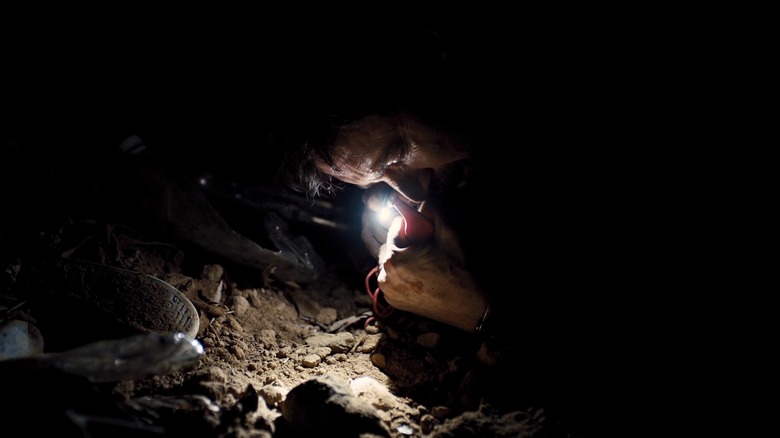Prisoners' Screenwriter Didn't Think The Studio Would Keep Its Cliffhanger Ending
The ending of "Prisoners" (spoilers follow) leaves the viewer with much to ponder, not the least of which is ... what happens after the credits roll? The 2013 film, written by Aaron Guzikowski and directed by Denis Villeneuve (in his English-language debut), chooses an interesting moment to fade to black. Detective Loki (Jake Gyllenhaal) has saved the day, rescuing a kidnapped girl and shooting and killing the bad buy — or gal, played by Melissa Leo — who was about to give her a fatal injection. After rushing the girl to the hospital and recovering from his injuries, Loki returns to the scene of the crime: a house where the girl's father, Keller Dover (Hugh Jackman), lies unknowingly trapped underground in the backyard. Loki is about to leave when he hears a faint whistle in the wind and turns toward the sound.
And ... scene. "Prisoners" ends there, and in a 2013 interview, Guzikowski revealed that this was, miraculously, the original ending he wrote, which managed to survive the script-to-screen process. He told Buzzfeed:
"Oddly enough, that's how it was in the script when it was bought. And it never really changed. When we were shooting, we did shoot a version where it goes a little beyond where the fade out is. There's a version where he moves the car and sees Hugh down there, and so on. None of us really wanted to do that version, but we wanted to make sure we had it in case once the film was put together it seemed like it really needed it. But after testing the film with the ending it has now, everyone decided that was definitely the way to go. Joel Cox, the editor, felt very strongly about it. I just think that's the moment when the movie is ready to end."
'I like it much better being ambiguous'
"Prisoners" leaves open the possibility that Keller might go undiscovered, though Guzikowski said the back-up ending they shot did show the car being moved so the audience would know Keller was "going to be taken out of the hole."
"I like it much better being ambiguous," he added.
As it is, "Prisoners" heavily implies, when Loki turns back the second time, that he will trace the whistle sound to where Keller is trapped. Guzikowski conceded that "you assume that's what's probably going to happen," but said, "I like that there's a small chance that [Loki's] not going to get him out of there for whatever reason."
As to what possible reason that could be, Guzikowski explained, "I think there's a small percent chance that for some strange reason he might decide not to get the guy up. In my mind he would: Those two guys have a strange connection that they form over the course of the movie. That seems to be the logical next step for Jake's character at that moment."
"Prisoners" was distributed by Warner Bros., and it's easy to envision a scenario where a big studio like that might have imposed changes on a 150-minute movie that was coming from a director untested in the English-language market. However, the movie trusts its audience to use its own imagination at the end. Guzikowski concluded by saying:
"I was very surprised that we were allowed to keep that ending. I was surprised I was able to get the movie made, actually. It's a pretty dark script. Especially ending the way it does. It's definitely a testament to Alcon, the producers on the movie, sticking by the script and not wanting to make it into something it wasn't."

